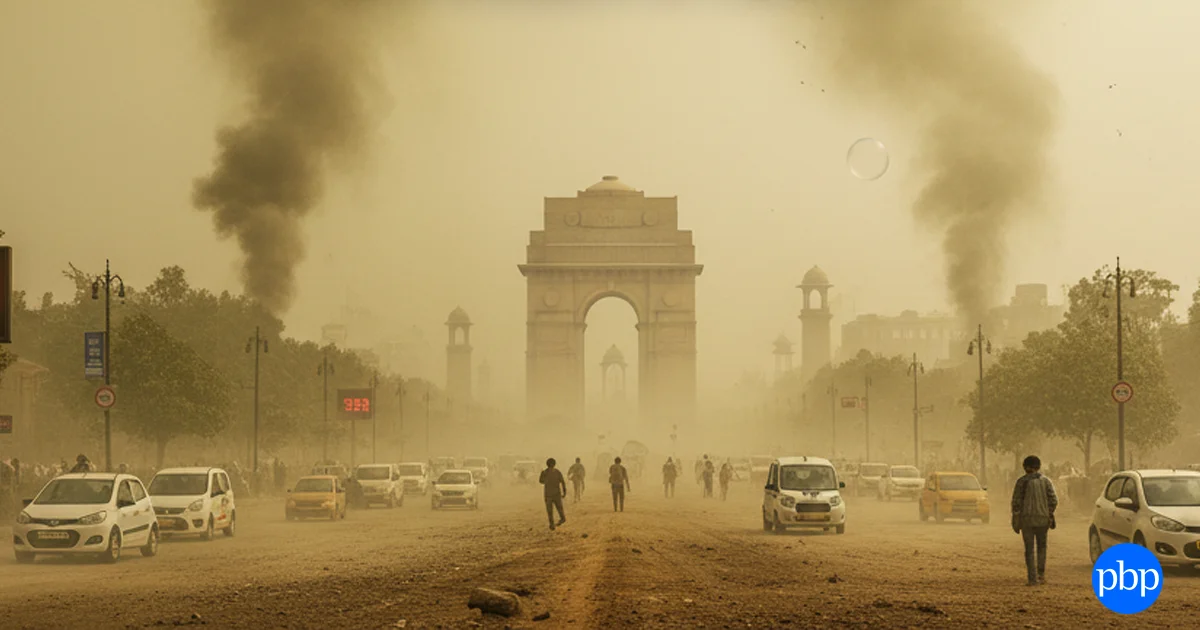For the past several weeks, Delhi-NCR has been blanketed in thick haze and smog. The Air Quality Index (AQI) has soared beyond 450, categorized as ‘Severe’. This means the air we’re breathing is not just polluted but dangerously toxic for everyone living in the region. This high AQI level is affecting millions, especially small children and senior citizens, leading to a rise in respiratory issues. In fact, studies reveal that air pollution shortens the average life expectancy of an Indian citizen by more than five years, making it one of the most significant public health challenges of our time.
What is AQI?
Air Quality Index (AQI) measures air pollution levels based on key pollutants like PM10, PM2.5, SO₂, NO₂, CO, and O₃.
An AQI below 50 indicates good air quality.
| AQI Level | Status |
| 51-100 | Moderate |
| 101-200 | Poor |
| 201-300 | Very Poor |
| 301-400 | Severe |
| Above 400 | Hazardous |
The question that now looms large is, how can we bring this number down?
Here are some practical ways to reduce AQI
Always turn off the lights when you are not in the room
Do you know? The electric energy we use to light our homes, schools, and offices consumes a lot of energy. The reason is that energy is generated from the power plants and also releases harmful gases into the air. The more we conserve energy, the better it will be at reducing AQI levels.
Planting of more trees
The more greenery there is in the environment, the better the AQI. Trees and plants purify the bad air in our environment. To create a sustainable future, it is a must to grow more trees and plants around us.
Prefer to purchase or opt for green electricity
If possible, maximize the use of green and renewable energy sources, such as hydropower, solar, and wind, as this minimizes the tons of fossil fuel emissions. Replace traditional cooking fuels with LPG, PNG, or electric stoves in rural areas.
Reduce Waste Burning
Avoid burning dry leaves, plastic, or household waste, one of the biggest contributors to air pollution. Local municipalities can organize community composting programs to create awareness and also impose strict penalties for the open burning of waste.
Avoid Using Harmful Chemicals
Many household and industrial products are known for releasing toxic fumes. Items like aerosol sprays, synthetic air fresheners, chemical cleaners, and paints often contain harmful VOCs. Consuming eco-friendly options such as herbal fresheners and low-VOC paints can help keep the air cleaner and healthier, resulting in reduced AQI.
Keep control of construction dust
Maximum airborne dust and PM2.5 particles are generated from construction sites. Covering construction areas, sprinkling water to suppress dust, and using pre-mixed concrete can minimize emissions.
To help reduce air pollution, encourage your friends and family too:
- Carpool with colleagues or friends
- Planning to purchase a new car, go with the lowest-polluting car
- Use of public transport
- Replace the air conditioning with a fan
- Use of recycled materials
- Use of water-based paints and cleaning products
- Opt for natural gas instead of charcoal
- Utilize solar and wind energy
Every Effort Counts
Controlling AQI is not just an environmental necessity; it’s a public health emergency. While implementing the policy reforms and government measures are equally contributing to reducing the AQI, individual efforts collectively can make a huge difference. Small actions, such as planting a tree, carpooling, avoiding waste burning, or simply spreading awareness, can help us breathe cleaner, healthier air.
The air belongs to all of us - and so does the responsibility to protect it.
Let’s work together to bring down the AQI, one clean breath at a time









